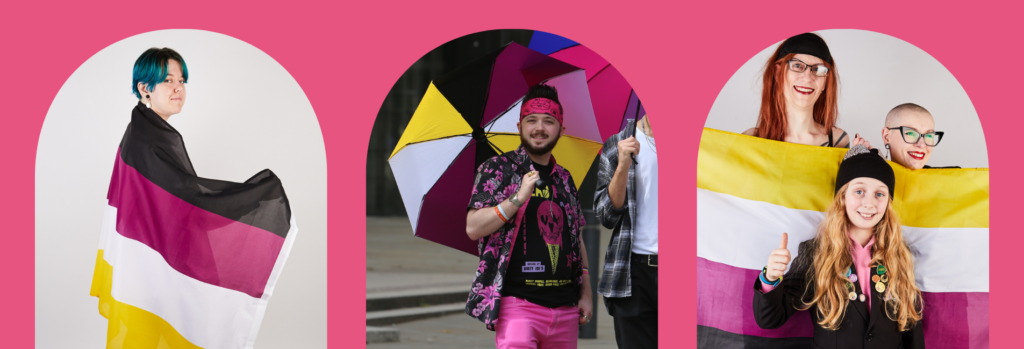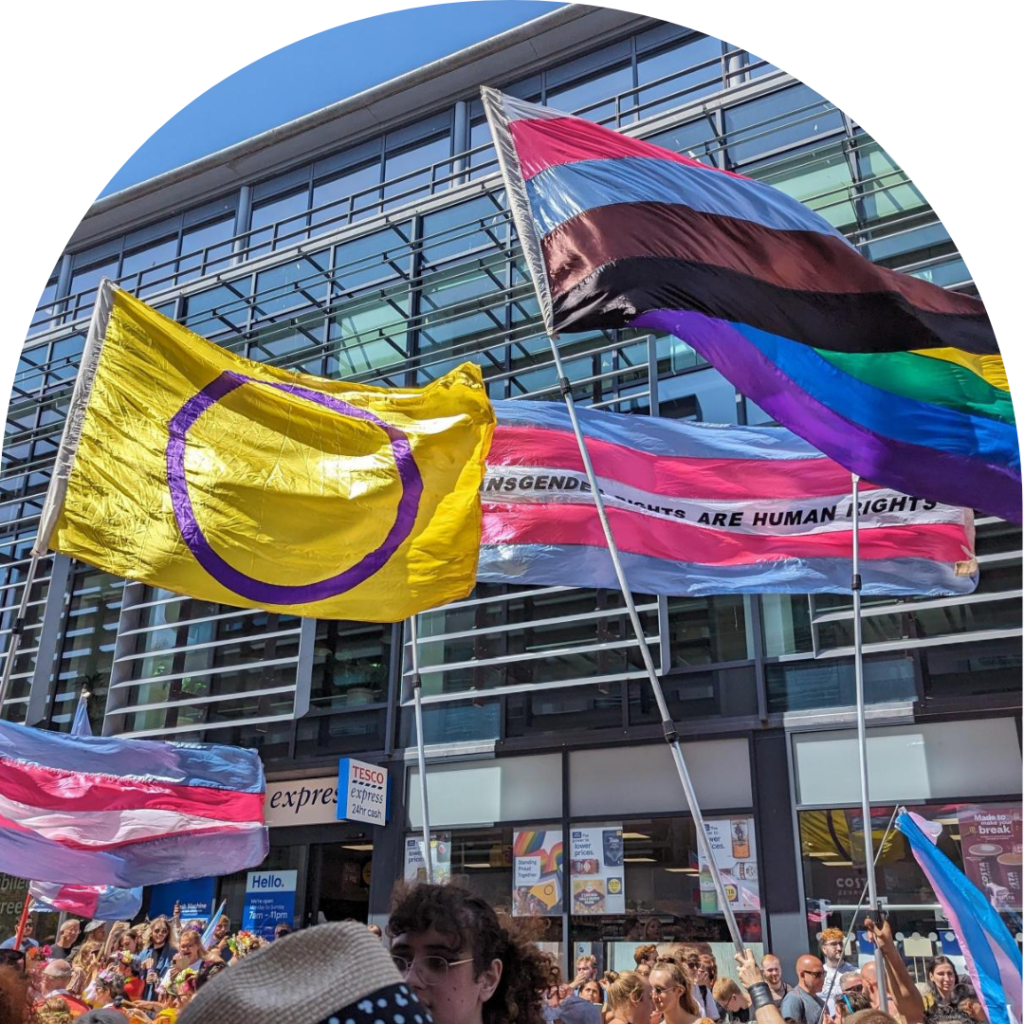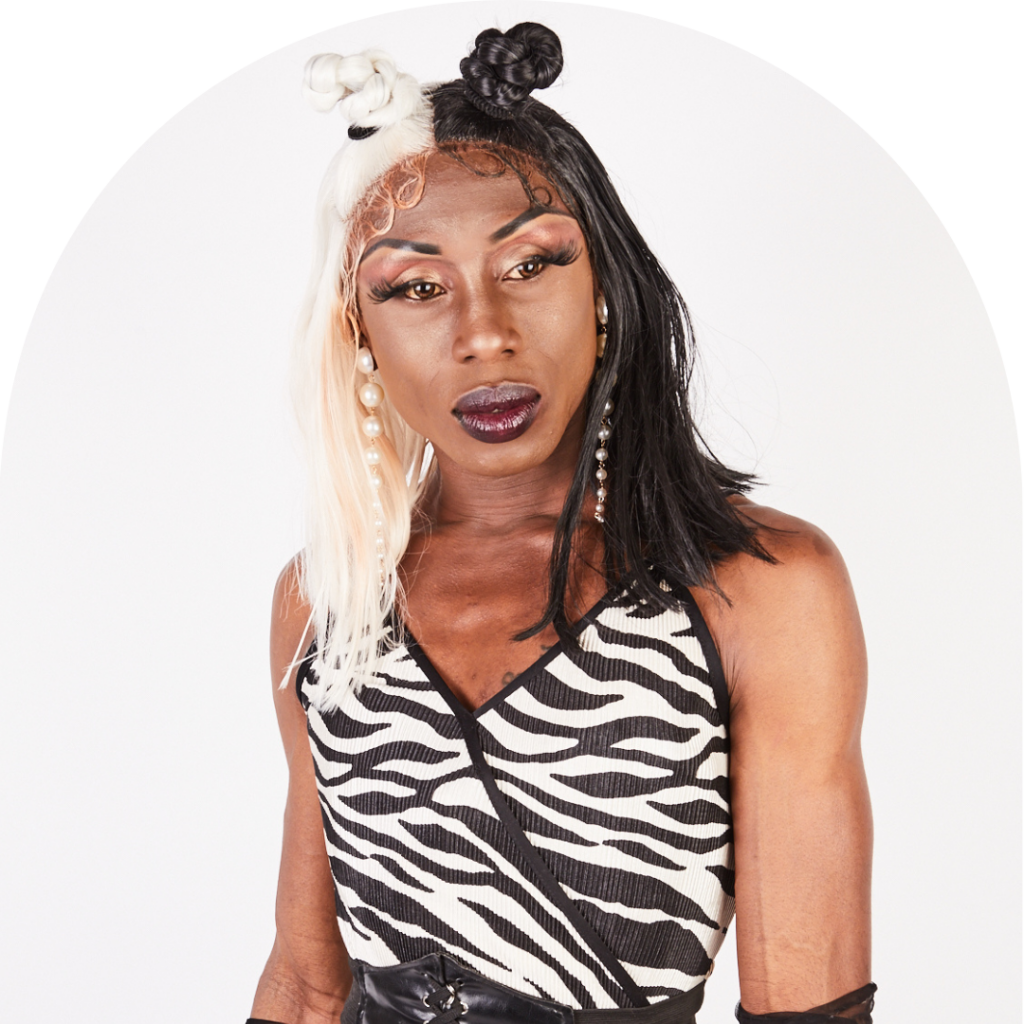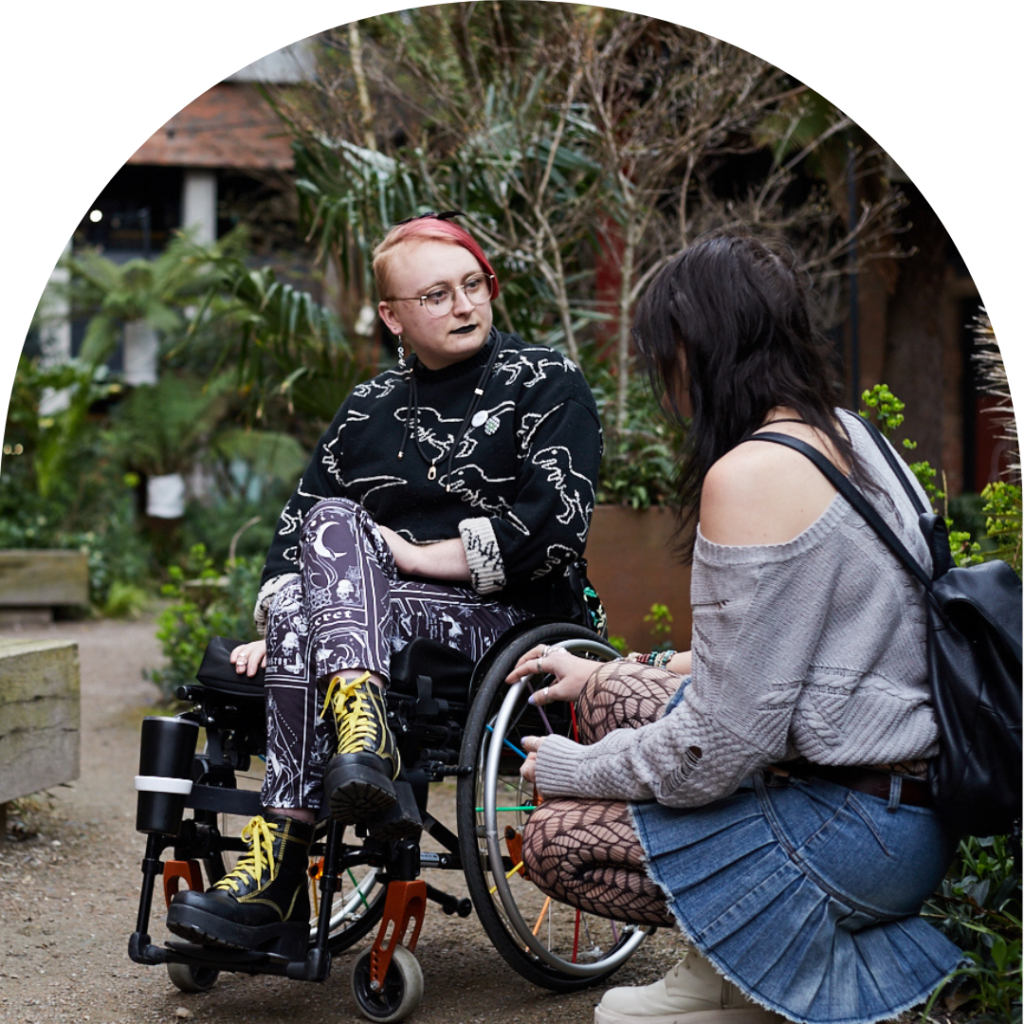
Wherever you fall on the colourful gender spectrum, we see you and celebrate your uniqueness.
Help spread queer hope and joy by supporting your non-binary community.

When we use the word transgender, we are referring to an inclusive umbrella term that consists of binary trans people (trans men and trans women), as well as non-binary people and people who cross dress.
Non-binary people feel their gender identity cannot be defined within the margins of gender binary. Instead, they understand their gender in a way that goes beyond simply identifying as either a man or woman.
Language and Labels
Language can be really powerful in helping to affirm your identity, feel confident and sharing your authentic self with others. In many cases, the labels that we give ourselves can help us connect with others who share the same identity and integrate into a larger community. Within LGBT communities, language is incredibly diverse. Some examples of common terms relating to gender are trans, non-binary, intersex.

What’s the difference between gender, trans and non-binary?
Gender is your internal sense of self, who you feel you are whether that’s male, female or perhaps you don’t feel strongly to any particular label about gender. Gender is often linked to ideas of masculinity, femininity, stereotypes etc. Your gender can be expressed in a number of ways, some common examples include clothing, behaviour and pronouns.
If your gender is the same as you were assigned at birth, this is known as cisgender (or cis for short). If you feel your gender is different to the one you were assigned at birth you may identify as trans or non-binary.
Trans is a really broad umbrella term. In general, it refers to anyone who isn’t cis and is inclusive of a range of identities such as trans woman and trans man. Some people who cross dress will also identify as trans.
Non-binary is used to describe people who feel their gender cannot be defined within the margins of gender binary. Instead, they understand their gender in a way that goes beyond simply identifying as either a man or woman.Some non-binary people may feel comfortable within trans communities and find this is a safe space to be with others who don’t identify as cis, but this isn’t always the case.
How else might non-binary people identify?
Because non-binary includes anyone that doesn’t fit the traditional narrative of male or female, non-binary communities are incredibly diverse. Non-binary people may identify as both male and female or neither male nor female. They may feel their gender is fluid can change and fluctuate or perhaps they permanently don’t identify with one particular gender. The range of language and labels used within non-binary communities means that non-binary has become an inclusive umbrella term. Some examples of terms commonly used by non-binary people include genderqueer, genderf*ck, neutrosis, agender, gender-fluid, bigender and third gender. This is not an exhaustive list but shows the richness of language and the many ways that you can describe your gender.


What pronouns and titles should I use?
Pronouns are short words used to describe someone instead of using their name, for example she/her or he/him. Non-binary people may choose one of these pronouns, but they may prefer a gender-neutral pronoun such as they/them. If you are unsure about someone’s pronoun, ask them. You may want to share your pronouns as well. Titles such as Mr and Mrs indicate binary gender of male or female. Mx is a gender-neutral title that is commonly used by non-binary people.
Are intersex people non-binary?
Intersex people are often assigned a gender at birth. This means that although they have a range of specific needs different to cis people, they may be overlooked because of their gender assigned at birth. Some intersex people may also identify as non-binary and feel that non-binary communities are safe spaces where they can feel included. However, this isn’t always the case and the term intersex is not synonymous with non-binary.

Our Inclusion of Non-Binary People

Are LGBT Foundation services inclusive of non-binary people?
Yes! Our staff receive training around trans and non-binary inclusion and are regularly invited to update this knowledge on a quarterly basis.
If you have any concerns about accessing our events and services, please call us on 0345 330 30 30 or email info@lgbt.foundation.
Can non-binary people attend LGBT Foundation events that are gendered?
Yes! Sometimes we provide events that are targeted specifically towards men or women in order to meet a specific need or gap within mainstream service provision. Non-binary people who see themselves as partially or sometimes identifying with either of these genders and feel they would benefit from accessing a women-centred or men-centred space are welcome to join us.
We are committed to challenging discrimination against non-binary people and will challenge behaviour that isn’t in keeping with our values. If you have any questions or concerns abour your experience at our events, please direct them to info@lgbt.foundation.


Are there exclusive events for trans and non-binary people?
Some of our events are for trans and non-binary people specifically, such as our regular community event, TransMCR. All non-binary people are welcome. We regularly provide non-binary specific spaces within these events, and non-binary people are involved with organising and running these spaces. We want to ensure that non-binary people feel included and represented in the events we offer. If you have any questions please email trans@lgbt.foundation.
-
www.lgbt.foundation/downloads/transalliesguide – guide to being an ally to trans and non-binary people
www.scottishtrans.org/non-binary – an organisation that works towards influencing government policy, informing trans people and promoting positive visibility
www.genderedintelligence.co.uk – a non-profit community interest company that seeks to increase understandings of gender diversity
www.genderqueerid.com – A platform that seeks to provide awareness, information and resources for those whose gender identity exists outside of the binary.
www.practicalandrogyny.com – a site which posts research and legislation and news surrounding non-binary identities.
http://genderqueeries.tumblr.com/titles – A list of gender-neutral titles for family and relations.
http://askanonbinary.tumblr.com/pronouns – A list of various pronouns that non-binary people may use
http://nonbinaryresource.tumblr.com/post/100702852… – A diverse list of resources aimed at educating on non-binary issues







